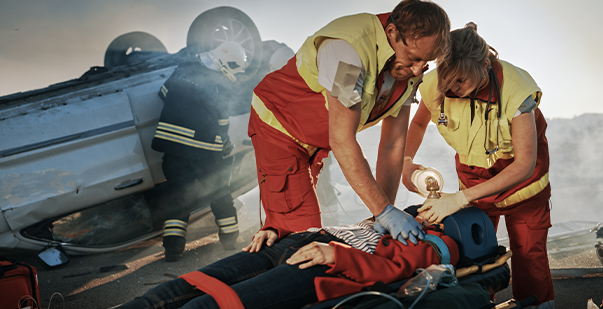
Last Updated On: septiembre 9, 2024
Traffic is a reality today, and someone must manage it. Traffic cops have one of the most challenging jobs under the sun. However, they must also know about life-saving courses to ensure they can save lives. A CPR certification for traffic cops can help revive cardiac arrest patients. This blog talks more about the reasons why traffic cops need life-saving courses. You will also read about the career path for life-saving practices in this profession.
Taking life-saving courses is the ideal way to help people in need. It is also easy to find an online course for people who do not have much time to spend in physical classes. Understanding the body’s anatomy, workings, and special techniques is the primary thing to learn.
Here are some pieces of training that traffic cops can take to recognize and respond promptly to cardiac emergencies:
In addition to this training, traffic cops should also be familiar with the location of AEDs in their area. They should also be aware of the signs and symptoms of cardiac arrest in children and infants. By taking this training, traffic cops can help save lives in a cardiac emergency.
Every traffic inspector must do more than divert cars. They need to act promptly in case of an accident or medical emergency. They must also know the local hospitals and the emergency response teams. Here are some additional tips for traffic cops who are responding to cardiac emergencies:
By following these tips, traffic cops can help save lives in a cardiac emergency. They can also confidently approach an accident site and help the victims.
The career demand for traffic inspectors and CPR is increasing. It is because cardiac arrest is a leading cause of death in the United States. Traffic inspectors are often the first responders to cardiac arrest incidents, so they need to be trained in CPR.
In addition to CPR, traffic inspectors should be trained to use automated external defibrillators (AEDs). AEDs are devices that can deliver an electric shock to the heart, which can help restart the heart in cardiac arrest. AEDs are now available in public places, including highways and roadsides. It means that traffic inspectors may be able to use an AED to save someone’s life even before EMS arrives.
Most traffic cops do not get to witness significant accidents. But they may be closest to one and must deliver CPR to the victims. In such a situation, not knowing CPR may be risky, and you may lose the victim. Learning this skill also helps traffic cops find better employment opportunities. However, CPR certification for traffic cops should always come from a recognized institute. The American CPR Care Association has seamless courses on this subject. We also offer continuing education credits and a recognized certificate upon completing the course.

